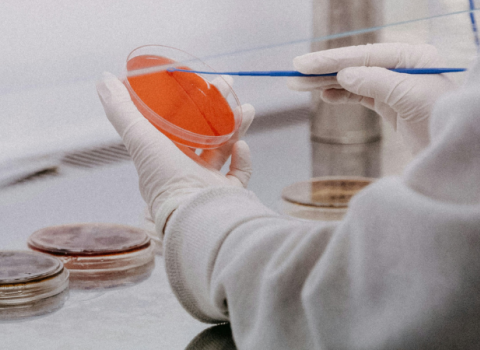The European Commission announced its advisory group on research ethics will continue next year, amid criticism that it has been allowed to wither on the vine.
The mandate of the 15-person European Group on Ethics in Science and New Technologies (EGE) was due to expire in January, but the Commission confirmed this week that its remit will be extended, with new members and a new home in the Commission’s research department.
Research Commissioner Carlos Moedas will be the new liaison manager for the group, disseminating its work to the rest of the Commission and the President, Jean-Claude Juncker.
The ethics panel will now live under the same roof as the new seven-person science advisory committee, which is expected to be formed before the end of the year.
“[Both] will be under my direct responsibility,” the Commissioner said. “There will be a lot of synergies between the ethics group and the science advice mechanism.”
“The news is really great,” said Julian Kinderlerer, professor of intellectual property law at the University of Cape Town and head of EGE. He was relieved the announcement put an end to a period of uncertainty for the group.
Concerns were raised because EGE was housed under the Bureau of European Policy Advisers (BEPA), which Juncker scrapped last November in favour of a new European Political Strategy Centre (EPSC).
In the absence of money from the EPSC to reimburse travel expenses, EGE members missed several meetings.
After BEPA was disbanded reports written by EGE disappeared from the Commission’s official website.
“It was very surprising for us to find old opinions weren’t accessible online,” said Pere Puigdomènech Rosell, professor at the Centre for Research in Agricultural Genomics in Barcelona and a current member of the group.
The reports have since reappeared in an archived section of the Commission website.
The EGE, currently comprising five theologians, five lawyers and five scientists, has been in place since 1991 as one of the main bodies advising the Commission on science. It has reported on subjects as diverse and politically sensitive as surveillance technologies, embryo research and genetically modified organisms.
In 2008, the group studied animal cloning, concluding it, "does not see convincing arguments to justify the production of food from clones and their offspring". Later that year members of the European Parliament voted on an EU-wide ban on food produced from cloning, and this year voted to extend the ban to imported produce.
In 2014 in a report on the ethics of surveillance technology, the EGE concluded, “technologies with the potential to intrude into the privacy of individuals and to which they cannot consent (or cannot opt out), require specific justification. The EGE calls for a case by case justification for these measures.” This is in line with the European Court of Justice, which in the past two years issued landmark ‘right to be forgotten’ and ‘safe harbour’ rulings.
Moedas and Juncker made an appearance at what was to be one of the last meetings of the current group on Tuesday. Junker assured members that although the future ethics group will not be directly under the control of the President, as was the case previously, EGE would continue to have his ear.
Members had previously made several failed attempts to arrange a meeting with Juncker following his election last year.
Inconvenient advice
Rosell said he used the meeting to impress on Moedas the importance of independent science advice. “At certain points, the new Commission has appeared reluctant to [listen to it]. They shouldn’t be, even if the advice is inconvenient.”
There will be an official advertisement to recruit new members for EGE soon.
Any researcher who has already served three five-year terms on the panel may not be considered to stay on, which means a handful in the current committee, Rosell included, could leave.
The rest of the members will be considered for re-appointment, with the Commission saying it hopes the group will be back up and running during the first half of 2016.
Responsibility for appointing the previous panel rested with former President José Manuel Barroso and his cabinet. EGE members said they expect this task will now fall to Moedas.
In the past, the head of the group was elected by members, and Kinderlerer said he thinks it will remain this way.Moedas’ office said the EGE secretariat will be part of the recently-created science advisory unit in DG Research and Innovation, but will have its own secretariat.





 A unique international forum for public research organisations and companies to connect their external engagement with strategic interests around their R&D system.
A unique international forum for public research organisations and companies to connect their external engagement with strategic interests around their R&D system.